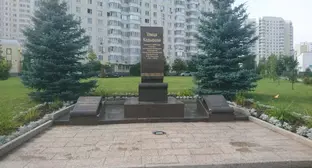24 December 2012, 12:14
Week in the Caucasus: review of main events of December 17-23
Launch of reconstructed Baksan HPP in Kabardino-Balkaria; departure from Russia of an activist-ecologist from the Krasnodar Territory with the aim to seek political asylum in another country; scandal around the change of the name of a district newspaper in Chechnya and decision of the ECtHR on disappearance of eight residents of the republic; signing an agreement on simplified entry visas for citizens of Armenia to EU countries; protest action in the context of the murder of a resident of Nevinnomyssk, resignation of Mayor of Zheleznovodsk and two ministers of the Stavropol Territory, – look these and other events in the Caucasus in the review of the week of December 17-23, 2012, prepared by the "Caucasian Knot".
Kabardino-Balkaria: start of reconstructed Baksan HPP
On December 22, Kabardino-Balkaria held a commissioning ceremony of the Baksan HPP after reconstruction, caused by the attack on July 21, 2010, when its equipment was damaged. Then, the attackers killed two securities and blew up the machine shop of the plant. The explosions disabled three generators and other equipment. In fact, a new HPP was built instead of the old one; and its power went up to 27 from 25 MW. Now, the average annual yield will make 108 million kilowatt-hours; and the complete cost of modernization made about 2.5 billion roubles.
The commissioning ceremony held in the form of a video conference was attended by Vladimir Putin; and two days prior to the launch, the prosecutor's office announced that some technical problems had been revealed in the process of reconstruction that threat to flood dwelling houses. However, the power engineers in charge denied any violations at reconstruction.
Krasnodar Territory: activist-ecologist leaves Russia hoping for political asylum elsewhere abroad
On December 21, it became known that Suren Gazaryan, an activist of the "Ecological Watch for Northern Caucasus" left Russia in fear, according to his story, of the conviction on the case about the incident near the "Putin's Palace" earlier this summer. A criminal case against Gazaryan was initiated under suspicion of a murder threat, allegedly addressed by him to a security guard of the "Putin's summer house"; and on December 15, the activist reported that he had been put on the federal wanted list under request of an investigator from Gelendzhik.
Currently, Gazaryan seeks asylum in a European country; and he fears a real deprivation of freedom, as he already has a conditional term for damaging the fence around the so-called "summer house" of Alexander Tkachov, Governor of the Krasnodar Territory. The inquiry into the criminal case in relation to the activist is suspended because of his search in Russia.
Chechnya: scandal around change of name of district newspaper, and decision of the ECtHR on disappearance of eight residents of the republic
On December 20, at the press conference of Russian President Vladimir Putin in Moscow, Bilkhis Dudaeva, the editor-in-chief of the Itum-Kalin district newspaper "Kadyrov's Way" asked Putin about the steps needed, in his view, to stabilize the situation in Northern Caucasus, and about increasing the broadcasting volume of the "Caucasus" Radio Channel. This fact angered the head of Chechnya Ramzan Kadyrov, while the administration of the Itum-Kalin District, the founder of the newspaper, closed it, making a decision to start another paper under the name of "Veduchi".
According to Bilkhis Dudaeva herself, the decision to stop the mass medium was caused, most probably, by journalists' jokes over its name. Kadyrov found her questions to Putin "provocative" and not related to Chechnya directly, and explained that the issue of publishing a paper named in honour of his father had not been agreed with him. However, there is data that the newspaper "Kadyrov's Way" was published with knowledge of the top authorities of Chechnya.
On December 18, the European Court on Human Rights (ECtHR) considered the case "Aslakhanova et al versus Russian Federation" and obliged Russia to pay out 550,000 euros to families of eight residents of Chechnya, who disappeared in the first half of the 2000s. The court took the side of the applicants who asserted that their relatives had been kidnapped by employees of Russian power agencies.
Armenia: agreement signed on simplified entry visas to EU countries
On December 17, in Brussels, officials of Armenia and the European Union signed an agreement introducing a simplified procedure of obtaining entry visas to the countries of the Shengen Zone for schoolchildren, students, scientists, journalists, entrepreneurs and disabled people. After the agreement is approved by the European Parliament and comes into force, it is also supposed to decrease the cost of an entry visa down to 35 euros; while for certain categories of citizens, in particular, children under 12 and pensioners, the procedure will be free of charge. Back on October 4, 2012, the government of Armenia made a decision to cancel unilaterally starting January 10, 2013, the visa regime for citizens of the EU member-states.
Stavropol Territory: action in connection with murder of a local, and dismissal of two ministers and mayor
On December 22, the city of Nevinnomyssk hosted a non-sanctioned protest action, organized by nationalistic groups named "Novaya Sila" (New Force) and "Narodnoe Opolchenie" People's Militia). The pretext for the action was the murder at night on December 6 near a night club of Nikolai Naumenko, 25, committed, according to the police, by natives of Chechnya. Prior to the action, the traffic in central city was blocked; several activists were detained; however, the rally was several hundreds strong and passed without excesses, the Mayoralty asserts. Two days before, officials from the administration of Nevinnomyssk, investigatory and law enforcement bodies told – at a meeting with residents – about the course of inquiry into Naumenko's murder and stated that they would not admit any political and religious provocations.
On December 17, the Duma of Zheleznovodsk satisfied the dismissal request of the head of the city Alexander Rudakov. Earlier, Yuri Turygin, the Public Prosecutor of the Stavropol Territory, raised the issue of Rudakov's resignation because of systematic non-fulfilment of his service duties before the Governor Valery Zerenkov.
On the same day, Mr Zerenkov accepted resignation of two territorial ministers – of roads and road infrastructure Vasily Doroshev and of construction and architecture Alexander Semyonov, who had submitted their resignation applications themselves. Both had worked for the territorial government quite for a short period – Doroshev was appointed to the post on May 30, 2012, and Semyonov – in early December this year by replacing Yuri Kornet, who was dismissed on November 6.




